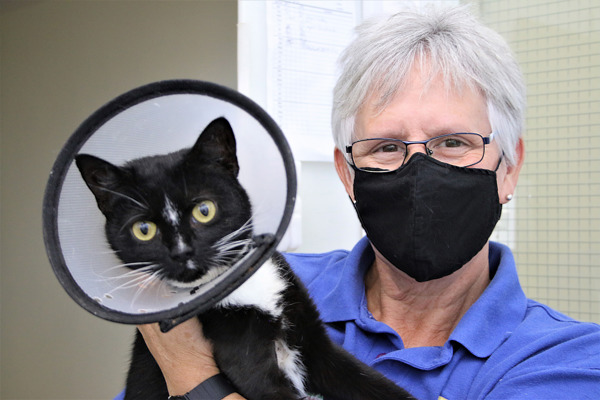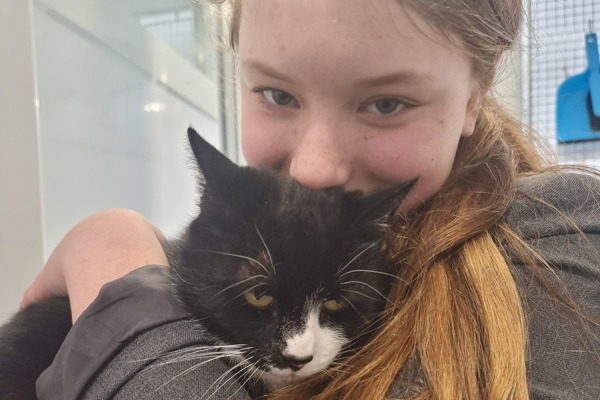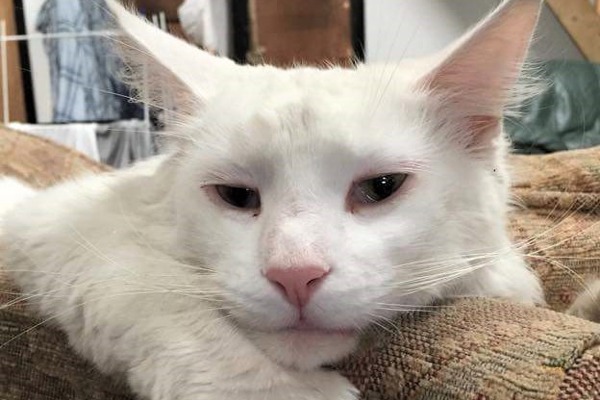Cats Protection issues graphic warning after a cat was found with horrific injuries caused by a dangerous flea collar.
Volunteers at Cats Protection’s Anglia Coastal Branch were alerted when a woman in Oulton reported that a stray cat had started to come in through her cat flap, scavenging food from her kitchen.
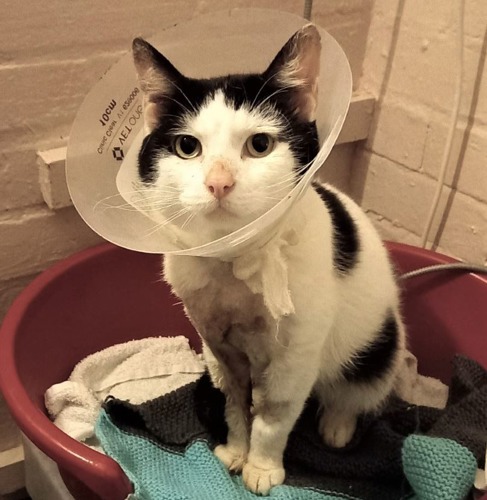
“She had noticed her own cat’s food was going missing in the night and then, one morning, she found Reggie hiding under a chair in her kitchen,” said Christine Cutts, Anglia Coastal Branch Coordinator. “He was fearful of being approached but the householder managed to get close enough to see a collar embedded in a painful-looking wound.”
After the woman contacted the branch, Christine was mobilised to try to trap the cat and check on his welfare.
“I took a trap to the house and the woman managed to catch him that night, which was lucky as it can sometimes take days,” said Christine. “When I picked him up early the next morning, it was clear that the cat was in a bad way. I was shocked to see the extent of the wounds and knew that he needed immediate vet attention.”
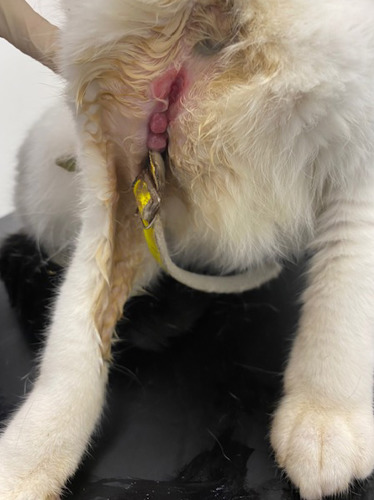 The wound caused by Reggie's collar
The wound caused by Reggie's collar
On admission to a nearby vet surgery, a scan revealed a microchip and the registered owners were contacted. Sadly though, this wasn’t to be a welcome end to the sorry tale.
“When we spoke to his registered owners, they were very surprised to hear that Reggie had been found after so long,” said Christine. “He had been missing for 18 months and, reluctantly, they had presumed him gone for good.
“Frustratingly, Reggie was found only minutes from home, so maybe he had been taken in by someone nearby. His original owners also said that he didn’t have a collar when he went missing, so someone else must have put that on him.
“Sadly though, we wouldn’t be able to reunite Reggie with his family. Their home circumstances had changed and so, after weighing up what was best for them and for Reggie, they took the difficult decision to sign him into our care.”
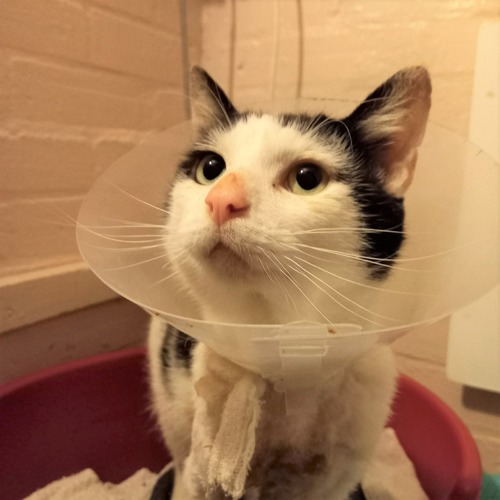
Vets who examined Reggie said that, while he should make a full recovery, it would take time for his injuries to heal with significant cost to the branch for reconstructive surgery and ongoing care before he would be fit to rehome.
Christine is caring for Reggie at home while he recovers enough to be transferred for further rehabilitation. She hopes that his case will raise awareness about how collars can be hazardous for cats. They can get caught on a fence or the cat can get their paw stuck in the collar, causing distress and injury, such as strangulation, deep skin lacerations and jaw damage.
“Despite how it looks, Reggie is one of the lucky ones,” said Christine. “Other cats have lost limbs and even died due to poorly chosen collars and we want to warn people about the real dangers and how similar injuries can be prevented.
“If for some reason an owner feels they want to put a collar on their cat, it’s important to use snap-release collars that come off quickly and prevent injury. Sadly, that wasn’t the case here and Reggie is having to pay for that.”
Sarah Merrett, Cats Protection’s Central Veterinary Officer, said: “As this case shows, collars can cause significant harm to cats. We recommend microchipping as the safest permanent method of identification for cats. Unlike collars, microchips don't come off or put cats at risk of collar-related injuries. If an owner does choose to have a collar fitted, we advise that they purchase a 'quick release' or snap-opening collar.” Find advice on how to choose a safe cat collar.
After leading the campaign for compulsory microchipping of pet cats, Cats Protection is delighted that it will become law in England next year. The government has announced that all pet cats in England must be microchipped from 10 June 2024. We are continuing to campaign for microchipping to be made compulsory in Wales, Scotland and Northern Ireland. Find out more about microchipping.

